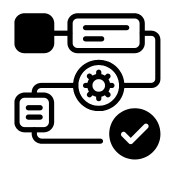Odoo ERP Consultant – Your Guide to Expert Implementation

Environment, efficiency, accuracy, and seamless integration across departments are not just desirable, they are essential.
Enterprise Resource Planning (ERP) systems have become the backbone of modern organizations, enabling businesses to streamline operations, reduce errors, and make data-driven decisions.
Among the leading ERP platforms globally, Odoo stands out for its flexibility, modular structure, and user-friendly interface. However, implementing an ERP system like Odoo is not a one-size-fits-all process.
Every organization has unique processes, workflows, and business requirements that must be considered. This is where the role of an expert Odoo ERP consultant becomes indispensable.
An Odoo ERP consultant acts as a strategic partner, guiding businesses through the complexities of ERP implementation, customization, and integration.
Their expertise ensures that the ERP solution is tailored to the organization’s specific needs, reducing implementation risks and maximizing return on investment.
Nakshatra Solutions, a certified Odoo partner in India, has been helping businesses achieve seamless ERP adoption for over two decades. You can explore their Odoo ERP services here to understand how their expert team can transform your business operations.
Why Hire an Odoo ERP Consultant

Implementing an ERP system is a strategic investment, often involving significant resources, both in terms of time and finances. Hiring an Odoo ERP consultant ensures that this investment delivers maximum value.
Consultants bring deep domain knowledge, technical expertise, and a structured approach to ERP implementation. They assess your business processes, identify gaps, and design a solution that aligns perfectly with your organizational goals.
Moreover, ERP consultants serve as the bridge between your business teams and the technical implementation team.
They translate complex business requirements into actionable technical specifications, ensuring that the ERP system works efficiently across all departments.
Without expert guidance, businesses often face delays, integration issues, and underutilization of ERP capabilities. With an experienced consultant, organizations can navigate these challenges smoothly.
Common Challenges in ERP Implementation and How Consultants Solve Them
ERP implementations are complex projects that often face challenges, including:
- Misaligned Business Processes: Many organizations struggle when their ERP system is implemented without considering existing workflows. Consultants analyze and map current processes to align them with the ERP system, ensuring minimal disruption.
- Data Migration Issues: Transferring data from legacy systems to Odoo can result in inconsistencies or loss if not handled correctly. Consultants implement robust data migration strategies, validate data integrity, and ensure seamless transfer.
- Integration Difficulties: ERP systems need to work in harmony with other tools such as CRM, HRMS, and financial systems. Consultants provide expertise in integration, ensuring data flows accurately and processes remain synchronized.
- Change Management: Employees often resist new systems due to unfamiliarity. Consultants guide organizations through change management, including training, documentation, and support, to enhance acceptance.
- Compliance and Security Concerns: ERP systems must adhere to regulatory requirements and safeguard sensitive business information. Expert consultants ensure that security protocols, user permissions, and compliance measures are correctly implemented.

Tailored Solutions
ERP consultants ensure that Odoo modules are customized to fit your business model, rather than forcing your processes to adapt to generic software functionalities.

Faster Implementation
Experienced consultants streamline the implementation process by anticipating challenges and employing best practices, reducing downtime and accelerating adoption.

Risk Mitigation
Consultants identify potential risks in advance, including data migration errors, integration conflicts, and compliance issues, ensuring a smooth deployment.

Risk Mitigation
By conducting training sessions and creating user-friendly processes, consultants help employees embrace the ERP system, improving overall productivity

Enhanced User Adoption
By conducting training sessions and creating user-friendly processes, consultants help employees embrace the ERP system, improving overall productivity

Scalability and Flexibility
A well-implemented ERP system, guided by consultants, is scalable and adaptable, accommodating future growth, additional modules, and evolving business requirements.
Key Services Offered by Odoo ERP Consultants

An Odoo ERP consultant provides a comprehensive suite of services designed to address all aspects of ERP implementation, from planning to post-deployment support. These services ensure that businesses can leverage the full potential of their Odoo system.
Business Requirement Analysis
Before any implementation begins, a consultant conducts an in-depth business requirement analysis. This process involves:
- Understanding the company’s vision, goals, and operational model.
- Mapping existing workflows across departments such as finance, sales, manufacturing, and HR.
- Identifying gaps, inefficiencies, and areas where automation can bring significant value.
The insights from this analysis form the foundation for ERP configuration and module selection. By thoroughly understanding business needs, consultants ensure that Odoo is not just installed but tailored for optimal performance.
Customized Mapping of ERP Modules
Odoo offers a wide range of modules covering CRM, inventory, accounting, HR, project management, and more. However, not every business requires all modules or the default configuration. Consultants map ERP modules to specific business requirements, ensuring that:
- Each department uses modules relevant to its operations.
- Custom workflows are integrated seamlessly into the system.
- Redundant or unnecessary features are removed, simplifying the user experience.
This level of customization enhances operational efficiency and maximizes user adoption.
Business Process Study and Improvement
ERP consultants do more than just implement software, they improve processes. By studying workflows, consultants can:
- Identify bottlenecks and redundancies.
- Recommend process improvements that enhance productivity.
- Automate repetitive tasks to reduce manual effort and human error.
This proactive approach ensures that the ERP system drives not only operational efficiency but also continuous business improvement.
Odoo Implementation and Integration
Implementation is the core responsibility of an ERP consultant. The process typically involves:
- Installing and configuring Odoo modules based on the business’s unique requirements.
- Integrating Odoo with existing systems such as CRM, e-commerce platforms, or payroll software.
- Configuring user roles, access levels, and reporting structures to match organizational hierarchy.
Consultants follow a phased approach, often starting with a pilot or sandbox environment, to minimize disruptions and ensure smooth deployment across all departments.
Program Modification and Development
No two businesses operate in exactly the same way, and standard ERP configurations may not cover every need. Odoo ERP consultants can:
- Develop custom modules tailored to unique business functions.
- Modify existing modules to support specialized workflows.
- Create custom reports, dashboards, and analytics tools to provide real-time insights.
This development ensures that the ERP system supports strategic business objectives rather than just operational needs.
Quality Assurance and Testing
Before the ERP system goes live, rigorous testing is essential. Consultants conduct:
- Functional testing to ensure each module works as intended.
- Integration testing to verify seamless communication between modules and third-party tools.
- User acceptance testing (UAT) to confirm that end-users can operate the system efficiently.
Quality assurance ensures that the ERP implementation is error-free, reliable, and ready to deliver value from day one.
Continuous Support and Upgrades
ERP implementation does not end with go-live. Continuous support is vital for addressing user issues, optimizing performance, and incorporating updates. Expert consultants provide:
- Ongoing technical support and troubleshooting.
- Regular system upgrades to leverage new features and improvements.
- Periodic audits to identify opportunities for optimization and process enhancement.
This continuous partnership ensures that the ERP system evolves with the business and remains a valuable asset over the long term.
Types of Odoo ERP Consultants
Implementing an ERP system like Odoo requires a blend of strategic planning, technical know-how, and business process expertise.
Consequently, Odoo ERP consultants generally fall into two broad categories: functional consultants and technical consultants.
Each plays a distinct role in ensuring a successful ERP deployment. Understanding the types of consultants and their responsibilities can help businesses identify the right expertise for their specific needs.
Functional Consultant – Role and Responsibilities
A functional consultant serves as the bridge between business requirements and the ERP system’s functionalities. Their role focuses on understanding the organization’s processes and ensuring that the ERP solution aligns seamlessly with operational goals.
Key responsibilities include:
- Requirement Gathering: Engaging with stakeholders to capture detailed business requirements across departments like finance, sales, inventory, HR, and procurement.
- Process Mapping: Analyzing existing workflows and mapping them to Odoo modules, ensuring that the system supports business needs rather than forcing adjustments.
- Customization Guidance: Recommending module customizations to enhance functionality and productivity.
- Training and Documentation: Preparing user manuals, conducting training sessions, and ensuring employees can effectively use the ERP system.
- Change Management: Assisting organizations in adapting to new processes and workflows introduced by ERP implementation.
A functional consultant ensures that the Odoo system adds tangible value to business operations and enhances overall efficiency.
Technical Consultant – Role and Responsibilities
While functional consultants focus on business processes, technical consultants concentrate on the software’s architecture, development, and integration. Their expertise ensures that the system functions seamlessly and is tailored to specific technical requirements.
Responsibilities include:
- Module Development and Customization: Creating custom modules or modifying existing ones to meet unique business needs.
- Data Migration: Ensuring accurate transfer of data from legacy systems to Odoo without loss or inconsistency.
- Integration: Connecting Odoo with third-party applications, payment gateways, e-commerce platforms, and other software tools.
- Technical Troubleshooting: Resolving system errors, performance issues, or configuration conflicts.
- Upgrades and Maintenance: Keeping the system updated with the latest Odoo releases while maintaining stability and performance.
Technical consultants ensure the system is robust, scalable, and capable of supporting complex business requirements efficiently.
How an Odoo ERP Consultant Works
Understanding how an ERP consultant operates helps businesses streamline the engagement process and ensures optimal results from their ERP investment. The workflow typically includes several well-defined phases:
Hiring a Certified Consultant
Selecting a certified Odoo consultant is critical. Certified consultants have demonstrated knowledge of Odoo’s architecture, best practices, and implementation strategies.
By hiring certified experts, businesses can reduce the risk of errors, delays, and underutilization of the system. Nakshatra Solutions, for instance, is a trusted Odoo partner with certified functional and technical consultants who provide end-to-end support. You can explore their Odoo ERP services here.
Analysis of Business Processes
The consultant begins by thoroughly analyzing the organization’s existing business processes. This involves:
- Documenting workflows across departments.
- Identifying inefficiencies, redundancies, and bottlenecks.
- Understanding compliance and reporting requirements.
This analysis forms the foundation for the ERP implementation plan, ensuring that the system supports optimized processes rather than forcing rigid workflows.
Mapping Software Requirements
Once the business processes are analyzed, the consultant maps these requirements to Odoo modules. This includes:
- Selecting the appropriate modules for finance, inventory, HR, CRM, manufacturing, and other areas.
- Designing workflows, automation rules, and approval hierarchies.
- Planning data migration strategies and integration points.
Mapping software requirements ensures that Odoo aligns precisely with the business’s functional needs and operational goals.
Reviewing Consultancy Reports
Consultants prepare detailed reports outlining recommendations, configurations, and implementation plans. Businesses review these reports to:
- Validate the proposed workflows and system configurations.
- Identify potential risks and mitigation strategies.
- Approve the plan before development and deployment begins.
This step ensures transparency, clarity, and alignment between stakeholders and the implementation team.
Implementation and Monitoring
The final phase involves actual system deployment and monitoring. Consultants guide the organization through:
- Module installation and configuration.
- Custom development and testing of workflows.
- User training sessions and support.
- Continuous monitoring to ensure the system performs as expected.
Monitoring post-implementation is crucial to address unforeseen issues, optimize performance, and enhance user adoption.
Choosing the Right Odoo ERP Consultant
Selecting the ideal ERP consultant is a strategic decision that can determine the success of your Odoo implementation. The following criteria are essential when evaluating potential consultants:
Evaluating Experience and Industry Knowledge
Experience matters in ERP implementation. Consultants with a proven track record in your industry understand domain-specific workflows, regulatory requirements, and reporting standards. Their industry knowledge accelerates implementation and ensures solutions are aligned with sector-specific needs.
Functional and Technical Expertise
A well-rounded consultant should possess both functional and technical expertise. Functional expertise ensures the system meets business requirements, while technical proficiency ensures smooth integration, customization, and system stability. A consultant who can bridge these domains adds significant value to the implementation process.
Evidence of Past Success and Case Studies
Consultants should provide case studies, client testimonials, or project portfolios demonstrating successful Odoo implementations. These references offer insights into their methodology, problem-solving approach, and ability to deliver results under diverse scenarios.
ERP Project Management Skills and Methodology
ERP implementation is a complex project requiring effective planning, resource allocation, and risk management. Consultants who follow structured project management methodologies, such as phased implementation, agile practices, or milestone tracking, are better equipped to deliver projects on time and within budget.
Transparency, Communication, and Cultural Fit
Clear communication and transparency are vital for successful ERP deployment. Consultants should provide regular updates, maintain open channels for queries, and align with the organization’s culture. A strong cultural fit ensures smoother collaboration with internal teams.
Cost Planning and Budgeting
ERP projects involve significant investment. Consultants should provide a clear, detailed cost plan covering licensing, customization, training, and ongoing support. Effective cost management prevents budget overruns and ensures the ERP project delivers maximum value for the resources invested.
Pricing and Hiring Models
Choosing the right pricing and hiring model for Odoo ERP consultants is critical to ensure the project stays within budget while delivering maximum value. Different businesses have varying requirements, timelines, and budgetary constraints, which is why consultants typically offer flexible models to cater to diverse needs.
Basic, Professional, and Expert Packages
Most Odoo ERP consultants, including Nakshatra Solutions, structure their services into tiered packages to accommodate different levels of business complexity:
- Basic Package: Designed for small businesses or startups, this package typically includes essential modules such as finance, inventory, and sales management. It covers standard configurations, basic training, and limited support. This option allows businesses to implement Odoo quickly with minimal upfront investment.
- Professional Package: Suitable for medium-sized enterprises, this package includes additional modules like HR, CRM, manufacturing, and project management. It offers greater customization, integration with existing tools, and extended support. This package is ideal for businesses seeking to streamline multiple operations while maintaining flexibility.
- Expert Package: Targeted at large organizations or businesses with complex processes, this package includes full ERP implementation across all modules, extensive customization, third-party integrations, advanced reporting, and continuous support. The expert package ensures that the ERP system is fully tailored to business-specific requirements and scalable for future growth.
Contract Terms and Payment Process
Odoo ERP consultants provide clear contract terms to ensure transparency and alignment with business expectations. Typical features include:
- Fixed-term Contracts: Defined timelines for project phases with clear milestones and deliverables.
- Time and Material Contracts: Charges based on actual hours worked and resources deployed, offering flexibility for evolving requirements.
- Payment Process: Payments are usually structured in phases, linked to project milestones such as requirement analysis, module configuration, testing, and go-live.
By defining terms and payment schedules upfront, businesses can manage costs effectively and ensure accountability throughout the ERP implementation journey.
Frequently Asked Questions (FAQ)
Which Odoo Version Should I Choose?
Choosing the right Odoo version depends on your business needs, budget, and technical resources. The latest version is generally recommended as it includes updated features, enhanced security, and long-term support. Consultants assess your requirements to recommend the version that best fits your operations.
What Modules Are Essential for My Business?
Essential modules vary based on your industry and operational needs. Typically, businesses require finance, inventory, sales, and CRM modules as a foundation. Additional modules like HR, manufacturing, project management, or e-commerce integration can be implemented as your business grows.
Can Odoo Integrate with Third-party Software?
Yes, Odoo is highly flexible and can integrate with third-party software such as accounting tools, payment gateways, e-commerce platforms, logistics systems, and more. Expert consultants ensure seamless integration to maintain data consistency and workflow efficiency.
Where Should I Host My Odoo ERP?
Odoo ERP can be hosted on the cloud or on-premises. Cloud hosting offers scalability, accessibility, and lower IT overhead, while on-premises hosting provides full control over data and infrastructure. Consultants guide businesses to choose the best hosting model based on their technical capabilities and compliance requirements.
How Long Does Implementation Take?
Implementation timelines depend on business complexity, the number of modules, and the level of customization required.
Small-scale deployments can take a few weeks, whereas full-scale ERP implementation for large enterprises may span several months. Certified consultants provide detailed project plans with realistic timelines for each phase.
Success Stories – Brands and Companies Using Odoo ERP
Odoo ERP has transformed operations for businesses across diverse industries, including manufacturing, retail, education, healthcare, and finance.
Companies have reported significant improvements in process efficiency, inventory management, customer engagement, and reporting accuracy after implementing Odoo with expert guidance.
Nakshatra Solutions, a certified Odoo partner, has worked with numerous organizations to deliver end-to-end ERP solutions, ensuring that each deployment is customized, scalable, and aligned with business goals.
From startups to large enterprises, Nakshatra Solutions’ clients have successfully leveraged Odoo to optimize operations, reduce costs, and achieve measurable growth.
Start Your Odoo ERP Journey with an Expert Consultant Today
Implementing an ERP system is a critical investment that can determine the long-term efficiency and scalability of your business.
Partnering with a certified and experienced Odoo ERP consultant ensures that you make the right strategic decisions, avoid costly mistakes, and maximize the value of your investment.
With over two decades of experience, Nakshatra Solutions provides end-to-end Odoo ERP services, including requirement analysis, module customization, system integration, training, and continuous support. Their team of functional and technical consultants ensures that your ERP implementation is smooth, reliable, and aligned with your unique business processes.
Embark on your Odoo ERP journey today with expert guidance from Nakshatra Solutions and unlock the full potential of your business operations.




